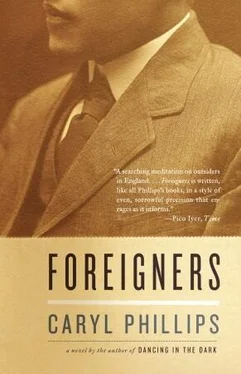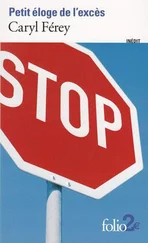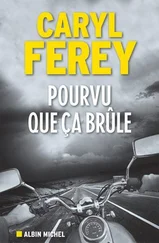27 Church Lane, Horsforth, Leeds 18. By a church. A small estate of respectable semi-detached and detached brick homes. Built in the sixties for the upwardly mobile middle classes. Safe. Neat. Shrubbery. Trees. The estate oozes civic pride. I watch an old man edge slowly out of a door on his Zimmer frame. Another old man, a neighbour (with his shirt off), puts the hose over his plants and trees. They've all worked and lived together. Now they are retired together. Closed community. Protecting each other. There is a blue saloon car parked outside number 27. Neat white net curtains in the windows. The house overlooks the church. Quiet peaceful house. Net-curtained respectability. A TV aerial on the roof. Two teenage schoolboys in white shirts and long black trousers, ties flying in the breeze, backpacks hanging off one shoulder, lollop by with cans of Coke in their fists. There is a burglar alarm to the side of the house number. It is yellow. From the back of the house there is a spectacular view of the Aire Valley. A panoramic view over the city of Leeds. Enjoy your retirement, former Inspector Ellerker. Black sheep.
Middleton Woods. South Leeds. Beyond Hunslet and Beeston. Close to Belle Isle. David was dropped in wilderness and found himself surrounded by dark, inhospitable nature. The nearest one might approach to a jungle of untamed land on the southern edge of Leeds. Go back to nature, black boy from Lagos. Go back to the jungle. Come, let me take you there. And today, thirty-five years later, one can see houses decorated with Union Jacks on the fringes of these same dark woods. And a church which flies the cross of St George. Smashed cars litter the streets. Unmarried teenage mothers push babies in second-hand prams around the perimeter of the dark woods. Houses sprout satellite dishes of various sizes. When I walk down the street, parka- and trainer-clad youths stare hard at me. They bare teeth that are a gated yellowish entryway into their spotted faces. Ten o'clock in the morning and already these youngsters are waiting for the pub to open. They have nothing else to do with their time except loiter around the boarded-up off-licence. In the daytime this is a zone of deprivation and depression. Every other house displays a 'For Sale' sign. At night, to be dumped and abandoned in the heart of the woods. Imagine it. No 'For Sale' signs. No humans. No light. In the heart of the woods. A terrifying hell, to be lost in a wood whose expanse is the size of a small town. Nothing in Middleton Woods is really tamed or sculpted. There is no human hand. Sergeant Kitching and former Inspector Ellerker taking the nigger back to nature, depositing him in fascist South Leeds. Sometimes they would take him deep into the heart of Middleton Woods and abandon him. Sometimes.
The Fox and Hounds is a stone building; the type of building that is imitated by those who insist on 'stonecladding' their otherwise ordinary homes. The inscription '1728' by the door suggests the pub's vintage. The village of Bramhope is a well-to-do suburb of Leeds, some ten miles beyond the city centre. Stone detached houses with neatly trimmed lawns. Closed minds. The pub itself is in the village square at the top of a short steep hill. The monitor for the car park CCTV is in the bar so that the barman can stand behind the bar and, as he pulls his pints, he can watch what is happening outside. Clearly there has been a recent problem with hooligans. In the bar itself there are neatly framed pictures of hounds and horses which suggest history and tradition. This is England. Hand pumps. Slate floor. Old clocks. Policemen might drink in a pub like this on their day off. Older policemen might be lucky enough to retire to a village like Bramhope and occasionally come to this pub for Sunday lunch. I sit and look around. I am sure that Sergeant Kitching and former Inspector Ellerker had a quiet contempt for this village and its people. Its 'well-to-do' people. By the back door there is a low stone wall. On the wall there is a sign which reads 'For Patrons Only'. It refers to the car park, but it could be the village motto. Smug village, with its small village square, and its proud little Village Bakery. Four o'clock in the morning. Go on, Sambo. Knock on the door and ask for a cup of tea. They've never seen anything like you. They'll be furious. They'll abuse you. And then you'll have the problem of trying to get back to Leeds city centre where we don't want you, understand? David had to walk back through the village. Then out into the open countryside. Miles to walk before the houses began to once more congregate by the side of the road. They laughed at David. 'Go on, nigger. Knock.' In the Fox and Hounds everybody is asleep. Four o'clock in the morning. Where are the hounds? The dogs on two legs. The animals in blue trousers. A lonely fox harming nobody.
Underneath the arches. Huge Dickensian arches beneath Leeds City Station. The river rushes right through the arches with a loud cascading roar. On stepping out again into the bright light one can hear the announcements of the train station. Once upon a time this was a vast filthy cavern full of homeless people. It's different now, underneath the arches. They have been 'redeveloped' (and renamed — Granary Wharf) into a pleasant new shopping complex, featuring Afrodisia — an Afro-Caribbean and French cuisine restaurant — and the Casablanca bazaar, which sells pots, bowls and baskets, and a stripped-pine furniture shop. All huddled underneath the arches, but the truth is this place cannot be reclaimed. It remains dark and forbidding. It resists redevelopment, and whispered stories linger in this dank air. Today, pedestrians use the arches of Granary Wharf as a short cut through to the city centre. They hardly ever break step for the place still reeks of abandoned lives and quiet desperation. They hurry through these arches, which once rejected David. 'He's not here and we don't want that type around here.'
By the Knostrop Sewage Works. Here the River Aire and the Aire-Calder Navigation Canal move side by side. The river rushes with a strong current, and flows away from the city centre. The canal lazily swirls and eddies. I watch swans floating on the canal. They have no desire to pursue a journey and travel through to Hull. Around nine o'clock in the morning the sun suddenly breaks through the clouds and casts a blinding light into my face. Still rising in the east. Don't look too closely. Don't look. I walk the narrow path between the river, with its fast-flowing water, and the languorous canal. The river bore you out of the heart of the city that you made your own. It carried you past the tall brick mills that stared in your direction; it carried you away from Leeds Parish Church and out towards the sewage works. The canal continues to lap quietly. A peaceful place where one can hear both the odd cry of a bird and the low hum of traffic somewhere in the distance. And then church bells begin to peal. On the hour. And then the stripe of sunlight on the water widens as the clouds part further. The glare is too much to bear, but the swans don't mind. They simply upend themselves and fish. And then one swan tries to rise in a gawky pantomime of flight that betrays the gracefulness of their residence on the water. These canals attract weeds. The shoreline is choked with effluence; empty pop bottles and abandoned packets of crisps. The washed-up scum of bad eating and living. Rubbish. Effluvium of an ignorant city. Back then, all those years ago, the hot machinery of Leeds stamped out brand-spanking-new goods for colonial use and dumped the waste into this water. Small-gauge trains to transport sugar cane in the Caribbean. Larger engines to India. Waste into the water. Back then, during the final spasm of empire. Back then, when it was still considered acceptable to furiously burn both industrial fuel and human dreams. White dreams and black dreams. Flat caps and woolly hair. Pull of a cig. Knock back a pint. Tuck the paper under your arm. Tramp your way to the bookies. Go home to the missus. Have your tea. What's the divvy? Go down the pub. Go on, go down the pub, dreamer. No colour bar in here, mate. I have come to your country to work. Go down the pub, mister. Go on, go down the pub. The river flows quickly. Down the river towards the sewage works. Rush away from your city, David. Over the tumbling weir and down into the tranquil part of the River Aire where you will eventually become snarled up in the undergrowth. Rest with the water. Spent. Knostrop Sewage Works on the bank of the river. The end of your journey. Betrayed by the water. Carry him further beyond the sewage works. Don't stop now. Carry him beyond this place. More respect, please. More respect.
Читать дальше











![Unknown - [Carly Phillips] The Bachelor (The Chandler Brothe(Bookos.org) (1)](/books/174132/unknown-carly-phillips-the-bachelor-the-chandle-thumb.webp)
